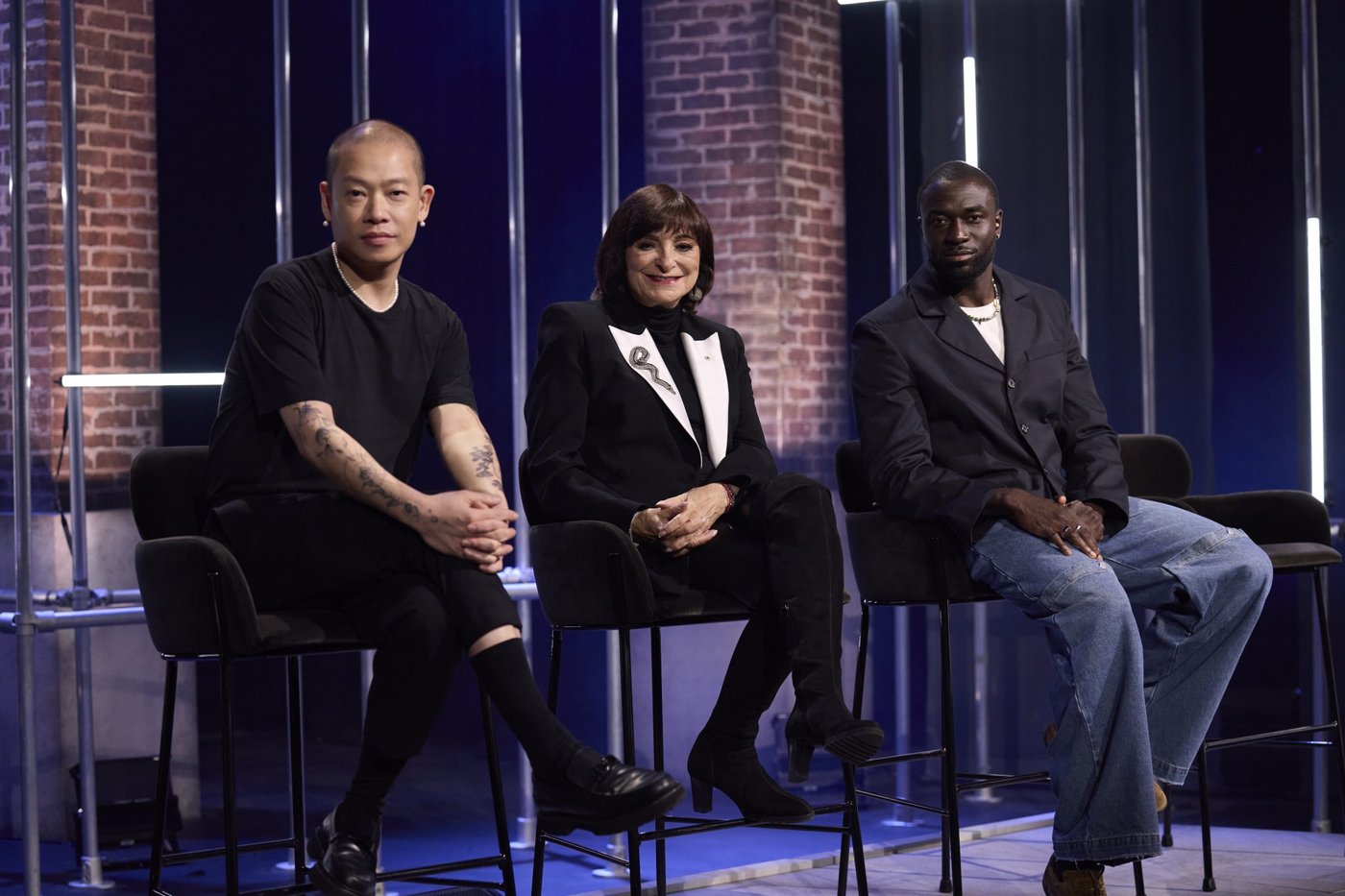Elevate your local knowledge
Sign up for the iNFOnews newsletter today!
Sign up for the iNFOnews newsletter today!
Selecting your primary region ensures you get the stories that matter to you first.

TORONTO — More than 15 years after it went off the air, “Project Runway Canada” is returning to a country re-examining its own cultural fabric.
For judge and designer Spencer Badu, the timing feels tailor-made. He hopes the show, premiering Friday on Crave, will shine a light on Canadian designers at a time when they’re being squeezed by tariffs and trade tensions with the United States.
“In a lot of ways, fashion in Canada doesn’t really get the airtime that it deserves,” says Badu, a Toronto native whose eponymous label specializes in genderless streetwear.
“Everyone wears clothes, but we’re seeing everything from everywhere else — things from Milan, from New York, from Paris. We’re not able to see the talent in our backyard.”
Badu says he’s noticed a “big difference” in customer behaviour ever since U.S. President Donald Trump announced tariffs on Canadian goods entering the U.S. earlier this year.
“A lot of our sales come from outside of Canada, and I do think there was a certain level of fear and resistance that came with buying from, for instance, our website,” he says, noting his label now pays for all duties on orders as a result.
These hurdles, Badu says, have made him focus more on his Canadian clientele — particularly those who can spend on high-end fashion — though local enthusiasm still lags. He sees “Project Runway Canada” as a way to shift that.
“I would only hope that it motivates people to buy from more local designers, and have the money circulate within the country, as opposed to buying something from another place,” he says.
“You’d be surprised what you can find in your own country if you look hard enough. Hopefully with the TV show, you don’t have to look hard. It’s in your face.”
The new season will pit 12 designers from across the country against each other for $100,000, a feature in Elle Canada and the title of “Canada’s Next Great Designer.” Badu serves as judge along with fashion journalist Jeanne Beker and model Coco Rocha, who also hosts, while Brother Vellies founder Aurora James mentors the contestants. Guest judges, including designer Jason Wu and TV personality Lauren Chan, rotate throughout the season.
“Project Runway Canada” first aired on Slice in the late aughts, hosted by model Iman, but was cancelled after two seasons.
Beker, a longtime champion of Canadian fashion, says the show feels especially necessary today.
“More than ever, we have to wave that Canadian flag of ours. It’s become increasingly important to really step out there and let people know who we are. And the truth is it’s always been this way, but we just never had the right platforms perhaps,” says Beker, who hosted Citytv’s “FashionTelevision” from 1985 to 2012.
“Marketing Canadian fashion has always been a real tough job.”
Beker says the relaunch of “Project Runway Canada” could help fill a long-standing gap in the country’s fashion ecosystem, which lacks the kind of infrastructure and visibility designers in New York or Paris take for granted.
“We don’t have anything like the Council of Fashion Designers of America … It’s really sad that the largest city in the country doesn’t have a kind of fashion week that really is recognized by people south of the border or overseas,” she says, noting that Toronto Fashion Week ended in 2016 due to a lack of funding.
Beker says the struggle for Canadian designers has never been about talent, but a lack of visibility — even within their own borders. While she tirelessly spotlighted local talent on “FashionTelevision,” the Toronto native says she’s always been struck by how little awareness there is around homegrown designers.
‘“Whenever I did a public appearance in Canada, I’d say, ‘How many people out there have Canadian designs in their closet?’ And there weren’t many people. There wasn’t that support because of a lack of knowledge of Canadian designers or knowing where to even buy them.”
She chalks some of it up to indifference among customers.
“Some people don’t necessarily care about supporting the local talent. They just want to dress up in whatever appeals to them.”
Badu says many Canadian designers “hit a wall” because the country lacks a strong fashion ecosystem. While stores in Tokyo, London and New York carry his clothes, he notes, none in Canada do.
At the end of the day, he says, it comes down to consumer demand.
“A store’s not going to buy my clothes over a designer from New York if people from Canada aren’t buying my clothes. It’s a business, right? In a lot of ways it starts and stops with the people.”
Badu hopes “Project Runway Canada” piques interest in Canadian fashion and sparks support for local designers. He insists the talent showcased this season sets it apart from any other iteration of the U.S. reality franchise.
Both Badu and Beker say they’d love to see the show get international distribution and amplify Canada’s fashion scene across borders.
But, they agree, the first step is at home.
“We just have to pray that these designers’ concepts resonate with people out there and that they understand the importance of supporting our own,” says Beker.
“If we don’t support Canadians, who’s going to support us?”
This report by The Canadian Press was first published Nov. 12, 2025.
This site is protected by reCAPTCHA and the Google Privacy Policy and Terms of Service apply.
Want to share your thoughts, add context, or connect with others in your community?
You must be logged in to post a comment.